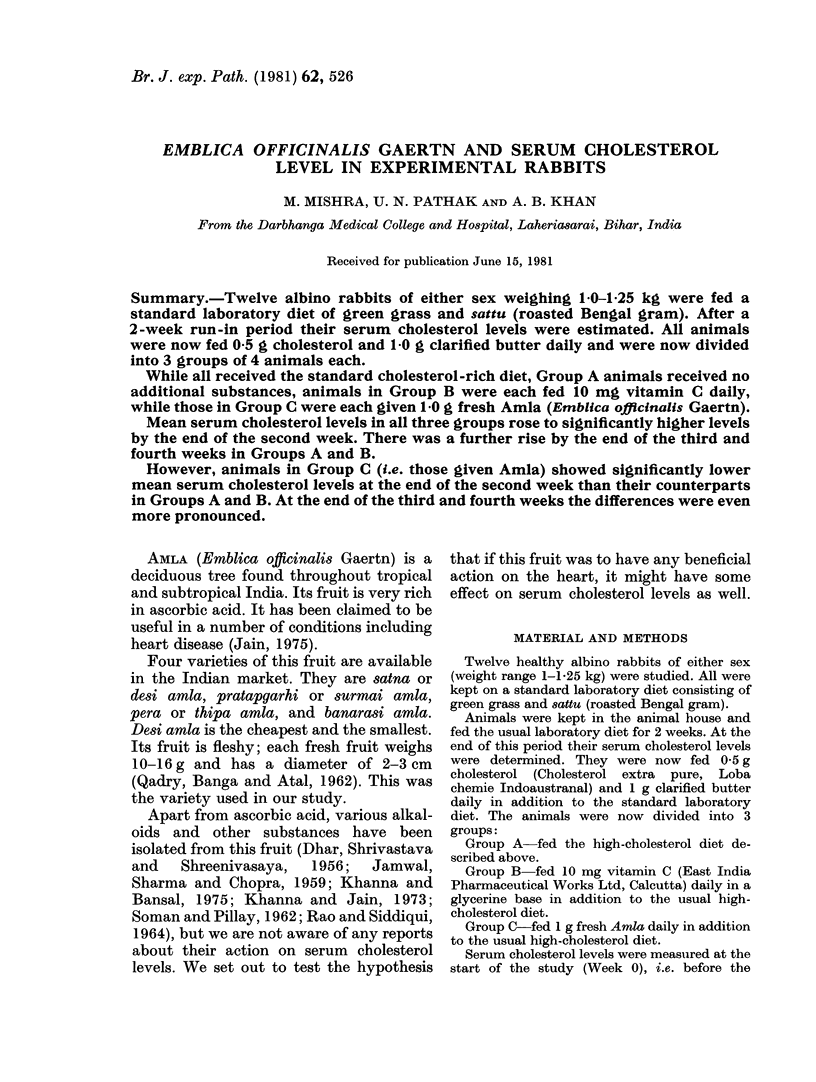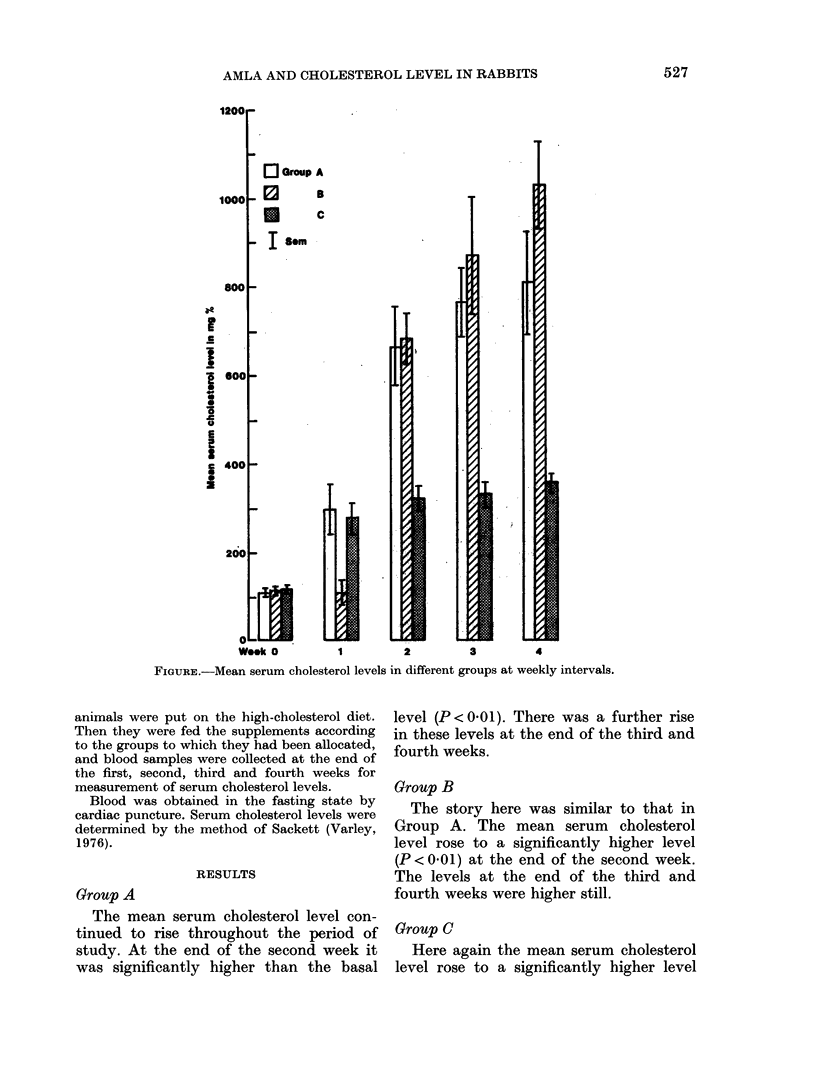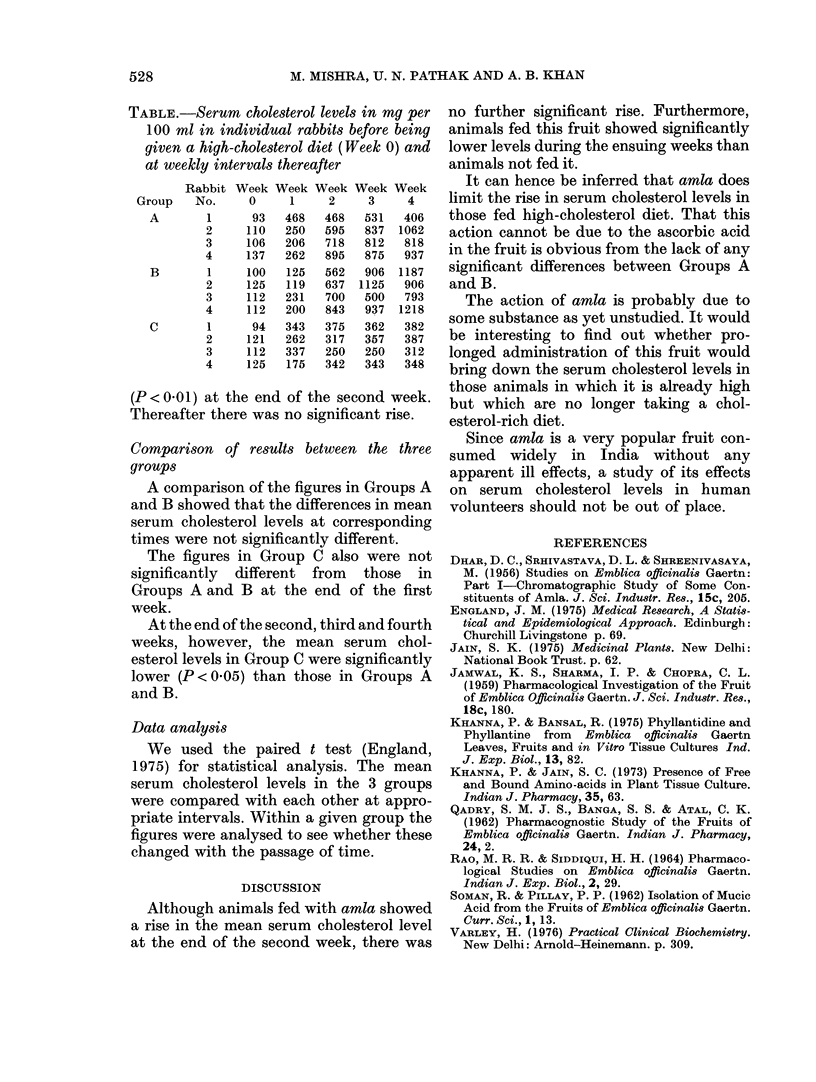Abstract
Twelve albino rabbits of either sex weighing 1.0-1.25 kg were fed a standard laboratory diet of green grass and sattu (roasted Bengal gram). After a 2-week run-in period their serum cholesterol levels were estimated. All animals were now fed 0.5 g cholesterol and 1.0 g clarified butter daily and were not divided into 3 groups of 4 animals each. While all received the standard cholesterol-rich diet, Group A animals received no additional substances, animals in Group B were each fed 10 mg vitamin C daily, while those in Group C were each given 1.0 g fresh Amla (Emblica officinalis Gaertn). Mean serum cholesterol levels in all three groups rose to significantly higher levels by the end of the second week. There was a further rise by the end of the third and fourth weeks in Groups A and B. However, animals in Group C (i.e. those given Amla) showed significantly lower mean serum cholesterol levels at the end of the second week than their counterparts in Groups A and B. At the end of the third and fourth weeks the differences were even more pronounced.
Full text
PDF




